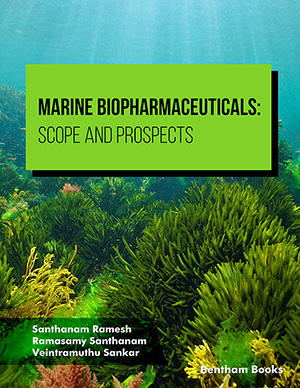Abstract
Peroxisome proliferator-activated receptor-γ (PPAR-γ) is a nuclear transcription factor which is involved in the differentiation of fibroblasts to adipocytes in vitro. PPAR-γ also plays a pivotal role in inflammation and macrophage activation. Furthermore, type 2 diabetes mellitus (T2DM), a condition in which an individual's ability to respond to insulin is lowered, is treated by drugs called thiazolidinediones (TZDs) that are known to activated PPAR-γ, thus augmenting insulin signaling and glucose uptake by adipose tissue. Unfortunately, these otherwise effective drugs are responsible for side effects such as obesity and cardiovascular diseases. The ligand-binding ability of PPAR-γ is different from other nuclear receptors since it can bind to a wide variety of ligands. Although a number of compounds have been shown to activate PPAR-γ, knowledge of its endogenous ligands and their physiological functions is lacking. The known ligands were either ambiguous or found to produce ill effects in vivo. In this review we discuss the structure and functions of PPAR-γ, ligands discovered so far, and focus on the importance of identification of physiologically relevant endogenous ligands.
Keywords: Adipogenesis, endogenous ligands, inflammation, macrophage, PPAR-γ, thiazolidinediones, type 2 diabetes.
Endocrine, Metabolic & Immune Disorders - Drug Targets
Title:The Need for Physiologically Relevant Peroxisome Proliferator-Activated Receptor-gamma (PPAR-γ) Ligands
Volume: 13 Issue: 2
Author(s): Parasuraman Aiya Subramani, Madhava C. Reddy and Venkata R. Narala
Affiliation:
Keywords: Adipogenesis, endogenous ligands, inflammation, macrophage, PPAR-γ, thiazolidinediones, type 2 diabetes.
Abstract: Peroxisome proliferator-activated receptor-γ (PPAR-γ) is a nuclear transcription factor which is involved in the differentiation of fibroblasts to adipocytes in vitro. PPAR-γ also plays a pivotal role in inflammation and macrophage activation. Furthermore, type 2 diabetes mellitus (T2DM), a condition in which an individual's ability to respond to insulin is lowered, is treated by drugs called thiazolidinediones (TZDs) that are known to activated PPAR-γ, thus augmenting insulin signaling and glucose uptake by adipose tissue. Unfortunately, these otherwise effective drugs are responsible for side effects such as obesity and cardiovascular diseases. The ligand-binding ability of PPAR-γ is different from other nuclear receptors since it can bind to a wide variety of ligands. Although a number of compounds have been shown to activate PPAR-γ, knowledge of its endogenous ligands and their physiological functions is lacking. The known ligands were either ambiguous or found to produce ill effects in vivo. In this review we discuss the structure and functions of PPAR-γ, ligands discovered so far, and focus on the importance of identification of physiologically relevant endogenous ligands.
Export Options
About this article
Cite this article as:
Subramani Aiya Parasuraman, Reddy C. Madhava and Narala R. Venkata, The Need for Physiologically Relevant Peroxisome Proliferator-Activated Receptor-gamma (PPAR-γ) Ligands, Endocrine, Metabolic & Immune Disorders - Drug Targets 2013; 13 (2) . https://dx.doi.org/10.2174/18715303113139990003
| DOI https://dx.doi.org/10.2174/18715303113139990003 |
Print ISSN 1871-5303 |
| Publisher Name Bentham Science Publisher |
Online ISSN 2212-3873 |
 43
43
- Author Guidelines
- Graphical Abstracts
- Fabricating and Stating False Information
- Research Misconduct
- Post Publication Discussions and Corrections
- Publishing Ethics and Rectitude
- Increase Visibility of Your Article
- Archiving Policies
- Peer Review Workflow
- Order Your Article Before Print
- Promote Your Article
- Manuscript Transfer Facility
- Editorial Policies
- Allegations from Whistleblowers
- Announcements
Related Articles
-
Comparison of Artemisia annua Bioactivities between Traditional Medicine and Chemical Extracts
Current Bioactive Compounds Perioperative B-blockers in Non-cardiac Surgery: Actual Situation
Current Pharmaceutical Design Association of Hypothyroidism with Body Mass Index, Systolic Blood Pressure and Proteinuria in Diabetic Patients: Does treated Hypothyroidism with Thyroxine Replacement Therapy Prevent Nephropathy/Chronic Renal Disease?
Current Diabetes Reviews Insulin Releasing Properties of the Temporin Family of Antimicrobial Peptides
Protein & Peptide Letters Sodium-glucose Cotransporter 2 Inhibitors and Ischemic Stroke
Cardiovascular & Hematological Disorders-Drug Targets Periodontitis and Redox Status: A Review
Current Pharmaceutical Design Editorial: [Hot topic: Weight Gain Management and Nutritional Education Throughout Pregnancy (Guest Editor: Hiroko Watanabe)]
Current Women`s Health Reviews Spirocyclic Nucleosides in Medicinal Chemistry: An Overview
Mini-Reviews in Medicinal Chemistry Unique Coronary Artery Disease Differences in Women as Related to Revascularization
Current Medicinal Chemistry Is Whole-Body Thermoregulatory Function Impaired in Type 1 Diabetes Mellitus?
Current Diabetes Reviews Effects of Diabetic HDL on Endothelial Cell Function
Cardiovascular & Hematological Disorders-Drug Targets Gait-Related Strategies for the Prevention of Plantar Ulcer Development in the High Risk Foot
Current Diabetes Reviews Is there any Additional Prognostic Value of Central Blood Pressure Wave Forms Beyond Peripheral Blood Pressure?
Current Pharmaceutical Design Effect of the Surfactant and Liquid Lipid Type in the Physico-chemical Characteristics of Beeswax-based Nanostructured Lipid Carrier (NLC) of Metformin
Pharmaceutical Nanotechnology Corrigendum: The Role of Statins in the Treatment of Type 2 Diabetes Mellitus: An Update
Current Pharmaceutical Design Human Recombinant Leptin Administration as a Potential Obesity Therapy
Immunology, Endocrine & Metabolic Agents in Medicinal Chemistry (Discontinued) Exploring AT2R and its Polymorphism in Different Diseases: An Approach to Develop AT2R as a Drug Target beyond Hypertension
Current Drug Targets Endothelial Dysfunction, Obesity and Insulin Resistance
Current Vascular Pharmacology Is the Use of Autologous Platelet-Rich Plasma Gels in Gynecologic, Cardiac, and General, Reconstructive Surgery Beneficial?
Current Pharmaceutical Biotechnology Towards High Resolution Optical Imaging of Beta Cells In Vivo
Current Pharmaceutical Design


























